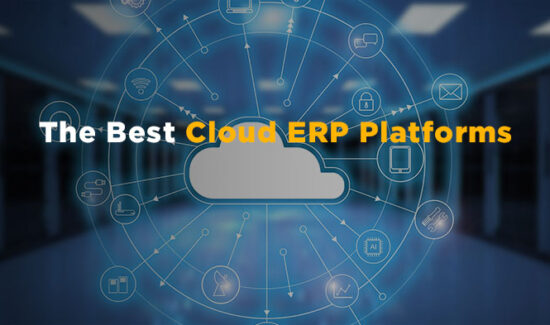
Choosing the right ERP system is always a tough choice, but in healthcare it might actually mean the difference between life and death. The entirety of the healthcare industry is dependent on easy access to real-time information, including medical updates and billing information. That being said, a strong ERP system can streamline business processes and organize workflows, bringing enhancements to productivity, profitability, and expansion. Let’s take a look at the ways that healthcare professionals can see real tangible benefits from an ERP system, and the measures you can take to ensure the best results from the system.
Widget not in any sidebars
There are a number of applications within healthcare that require data integration, real-time information updates, and data efficiency. To provide the highest patient satisfaction, quick and easy access to inventory data is absolutely essential. For example, imagine that a patient is in urgent need of one particular item, like crutches or a wheelchair. The staff should be able to quickly check their inventory and see if it’s in supply. If not, they’ll need to be able to quickly order more to ensure the patient receives the care they need.
An article at Tribridge Connections writes, “Running a healthcare organization can be an expensive undertaking and ERP technology can help them maintain these costs. An ERP system can provide real-time data to a healthcare organization or a hospital. This can help departments make critical decisions related to patient care or materials management.”
The never ending influx of patients and new technologies make an integrated patient database a necessity in a healthcare environment. Both doctors and clinicians require real-time information on their patients’ diagnostic reports to ease communication and optimize treatments and therapies. Furthermore, each department within a hospital relies on an automated solution to integrate core services, support, and back-office operations. With an ERP system in place you can store millions of data related to patients and their health concerns. Statistical reports can be generated and paperless patient examinations can be conducted with ease. Additionally, administrative data and hospital management data can be gained and viewed at any time.
One of the most common motivations for adopting an ERP system aside from centralizing data is the ability to reduce operational costs. An ERP solution manages every detail storing data related to the number of patients, beds, sheets, medicines, room charges, and more. With the ability to update one database and access it from any department, expenses related to the storage and transportation of data is greatly reduced.
When it comes down to it, proper implementation is absolutely essential. By failing to comply with implementation best practices, you’re not guaranteed to see the results you’re hoping for. During implementation, you should be sure to include input from clinicians, healthcare managers, stakeholders, and any intensive training programs for all users. Healthcare providers should determine which ERP solution is best suited to satisfy specific needs and plans. Remember to take the time to determine the deployment method that best fits your needs, whether that be cloud, hybrid, or on-premises.
An ERP solution in healthcare helps to bring healthcare providers, health insurance providers, and patients a single platform to centralize crucial information. Innovative and easy to use, these systems assist healthcare professionals with organization, inventory, and workflow management – so that they can put their attention in their core concern – namely quality patient care. If you’re looking for a quality ERP system, make sure to check out our 2016 ERP Buyer’s Guide.
This article was written by Elizabeth Quirk on December 14, 2016
Tags
Elizabeth Quirk
Liz is a leading enterprise technology writer covering Enterprise Resource Planning (ERP), Business Process Management (BPM) and Talent Management Suites (TMS) at Solutions Review. She writes to bridge the gap between consumer and technical expert to help readers understand what they're looking for. Liz attended Massachusetts College of Liberal Arts, where she obtained her Bachelor of Arts Degree in English and Communications. You can reach her at equirk@solutionsreview.com
- The 4 Top ERP Vendors to Be Paying Attention To This Year - March 9, 2021
- The ERP Software Guide and How to Choose The Best One - March 5, 2020
- 3 Security Features to Protect Your ERP Data - March 4, 2020

























